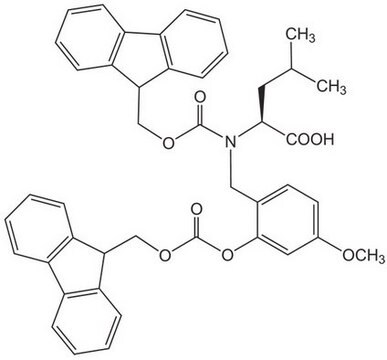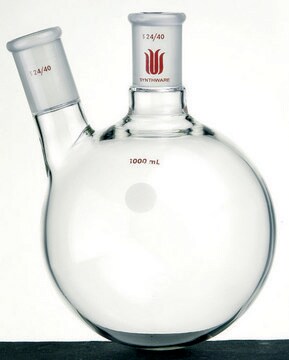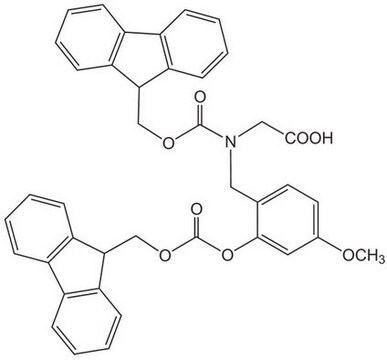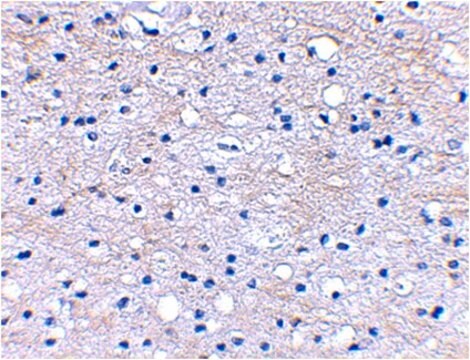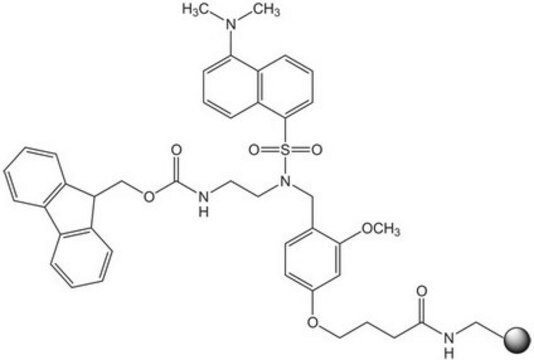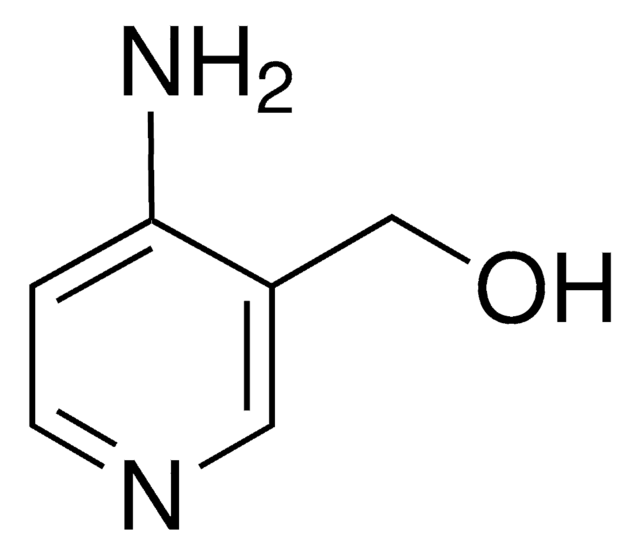8.52060
Fmoc-(FmocHmb)Ala-OH
Novabiochem®
Synonym(e):
N-α-Fmoc-N-α-(2-Fmoc-oxy-4-methoxybenzyl)-L-alanine
About This Item
Empfohlene Produkte
Qualitätsniveau
Produktlinie
Novabiochem®
Assay
≥95.0% (HPLC)
≥98% (TLC)
Form
powder
Eignung der Reaktion
reaction type: Fmoc solid-phase peptide synthesis
Hersteller/Markenname
Novabiochem®
Anwendung(en)
peptide synthesis
Funktionelle Gruppe
Fmoc
Lagertemp.
2-8°C
SMILES String
N([C@@H](C)C(=O)O)(Cc4c(cc(cc4)OC)OC(=O)OCC5c6c(cccc6)c7c5cccc7)C(=O)OCC1c2c(cccc2)c3c1cccc3
InChI
1S/C41H35NO8/c1-25(39(43)44)42(40(45)48-23-36-32-15-7-3-11-28(32)29-12-4-8-16-33(29)36)22-26-19-20-27(47-2)21-38(26)50-41(46)49-24-37-34-17-9-5-13-30(34)31-14-6-10-18-35(31)37/h3-21,25,36-37H,22-24H2,1-2H3,(H,43,44)/t25-/m0/s1
InChIKey
NABBLRADDJWAHI-VWLOTQADSA-N
Allgemeine Beschreibung
Associated Protocols and Technical Articles
Cleavage and Deprotection Protocols for Fmoc SPPS
Literature references
[1] T. Johnson, et al. (1993) J. Chem. Soc., Chem. Commun., 369.
[2] C. Hyde, et al. (1994) Int. J. Peptide Protein Res., 43, 431.
[3] L. C. Packman, et al. (1994) Pept. Res., 7, 125.
[4] T. Johnson, et al. (1994) Tetrahedron Lett., 35, 463.
[5] R. G. Simmonds (1996) Int. J. Peptide Protein Res., 47, 36.
[6] T. Johnson, et al. (1995) Lett. Pept. Sci., 1, 11.
[7] M. Quibell, et al. (1995) J. Am. Chem. Soc., 117, 11656.
[8] M. Quibell, et al. (1996) J. Chem. Soc., Perkin Trans. 1, 1227.
[9] M. Quibell, et al. (1994) Tetrahedron Lett., 35, 2237.
[10] M. Quibell, et al. (1994) J. Org. Chem., 59, 1745.
[11] M. Quibell, et al. (1995) J. Chem. Soc., Perkin Trans. 1, 2019.
[12] M. Quibell, et al. (1994) J. Chem. Soc., Chem. Commun., 2343.
[13] L. C. Packman (1995) Tetrahedron Lett., 36, 7523.
[14] J. Offer, et al. (1996) J. Chem. Soc., Perkin Trans. 1, 175.
[15] W. R. Sampson, et al. (1999) J. Peptide Sci., 5, 403.
Verlinkung
Hinweis zur Analyse
Aussehen der Substanz (visuell): Pulver
Identität (IR): entspricht
Enantiomerenreinheit: ≥ 99.5 % (a/a)
Reinheit (DC(011C)): ≥ 98 %
Reinheit (DC(157A)): ≥ 98 %
Gehalt (HPLC, Fl.%): ≥ 95.0 % (a/a)
Wasser (K. F.): ≤ 1.50 %
Löslichkeit (1 mmol in 2 ml DMF): klar löslich
DC-Bedingungen gemäß den Angaben unseres Hauptkataloges
Rechtliche Hinweise
Lagerklassenschlüssel
11 - Combustible Solids
WGK
WGK 2
Flammpunkt (°F)
Not applicable
Flammpunkt (°C)
Not applicable
Analysenzertifikate (COA)
Suchen Sie nach Analysenzertifikate (COA), indem Sie die Lot-/Chargennummer des Produkts eingeben. Lot- und Chargennummern sind auf dem Produktetikett hinter den Wörtern ‘Lot’ oder ‘Batch’ (Lot oder Charge) zu finden.
Besitzen Sie dieses Produkt bereits?
In der Dokumentenbibliothek finden Sie die Dokumentation zu den Produkten, die Sie kürzlich erworben haben.
Artikel
Learn how to overcome aggregation in Solid Phase Peptide Synthesis
Unser Team von Wissenschaftlern verfügt über Erfahrung in allen Forschungsbereichen einschließlich Life Science, Materialwissenschaften, chemischer Synthese, Chromatographie, Analytik und vielen mehr..
Setzen Sie sich mit dem technischen Dienst in Verbindung.